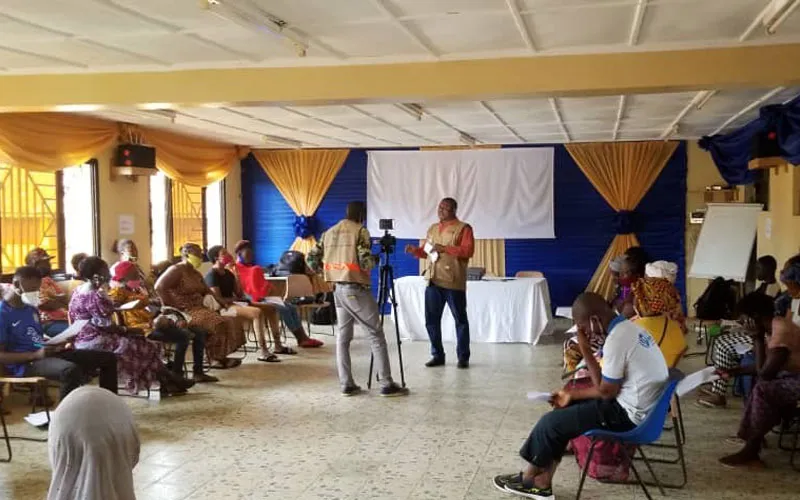He added, “This is the same manner in which in February 2014, Sierra Leone got the news of the outbreak of Ebola from this same republic of Guinea. In fact, the virus started at the same place it has started now and within the twinkle of an eye, it had spread to so many places.”
The Sierra Leonian Cleric said that with the news of a fresh outbreak in Guinea, the memories of the devastation that was caused by the virus many years ago “have started lurking in the minds of the poor and vulnerable population, especially women and children.”
He shared the fear that swept through the country when reports emerged that a military officer had the virus shortly after the February 14 reports of infection in Guinea.
“The other day, people heard about a military man who had symptoms similar to those of Ebola and they were very scared. Luckily, the man underwent tests and found to have some other ailment,” Fr. Konteh said.
Since 2016, when health agencies declared that Guinea, Liberia, Sierra Leone, Mali, Nigeria and Senegal were free of Ebola, Caritas Freetown has been catering for survivors of the disease, which left many with life-long health complications.
According to the statistics that were provided by Centres for Disease Control and Prevention (CDC), Sierra Leone was the most hit in the six West African countries that recorded Ebola cases, with a total of 14,124 suspected, probable and confirmed cases and 3,956 deaths. It was followed by Liberia, which recorded 10,678 suspected, probable and confirmed cases.
According to Fr. Konteh, over 4,000 survivors have been left to battle permanent health complications and loss of dignity in Sierra Leone, with about 1,500 victims living in the country’s capital, Freetown alone.
During the February 17 interview with ACI Africa, the Cleric, known for his zeal in creating international awareness during and after the Ebola outbreak in Sierra Leone, said that the country cannot afford to handle another Ebola outbreak.
“We are already at a very bad place owing to COVID-19. As a country, we are struggling with the huge economic turmoil that the pandemic caused us. We don’t know what we would do if we were to deal with Ebola again,” said Fr. Konteh.
He says that Sierra Leone lost many health officers, including some of the country’s best doctors in the fight against the 2013-2016 Ebola outbreak.








